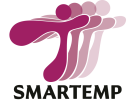Are you currently looking for a temporary job and hoping for a smooth recruitment process? It’s natural to perceive the experience differently from the hiring process for a permanent position. You may expect more flexibility and fewer formalities than in a permanent job interview. However, even in these cases, evaluating your performance after an interview is essential to understanding what you did well, where you can improve, and what steps to take for greater success in the future. Discover how to assess yourself after a temporary job interview and recognize the signs that indicate how the interview was!
Assess Your Interview Preparation
Preparation is key for any interview, and this is especially true for a temporary job. These roles often involve a variety of tasks, and employers typically seek candidates who can learn quickly and adapt. Start your self-evaluation by reflecting on what you did before the interview.
- Did you research the company? Did you learn about its organizational culture, values, and expectations?
- Did you understand the job requirements?
- Did you prepare answers to common interview questions?
How Did You Handle the Interview Questions?
A crucial part of self-evaluation is analyzing the questions you were asked and how you responded. Were you able to answer each question clearly and concisely? Did you understand what the recruiter was looking for with each question? For a temporary job, recruiters often want to determine if you can adapt quickly and if you have relevant skills for short-term tasks.
If you struggled with some answers or didn’t fully convey your experience, this might be an area to improve.
How Did You answer the Questions About Availability and Flexibility?
Temporary jobs often require availability for specific schedules or shifts.
How did you handle questions about your availability?
Did you discuss your adaptability? Did you provide examples from past experiences to demonstrate your flexibility?

How Did You Handle Difficult Questions?
During the interview, you will be asked more difficult questions. It is important to analyze how you approached these questions. Were you able to stay calm and answer honestly, without panicking? Did you give an honest answer, even when the question put you in a less than favorable light? If you had trouble answering difficult questions, it is a sign that you should practice approaching such situations in the future.
Did You Communicate Effectively with the Employer?
Communication is key in any interview. Did you clearly express your motivation for the job and company? Did you answer the employer’s questions in a structured way? Evaluating this aspect helps you understand if you managed to connect with the interviewer and effectively showcase your skills.
Another point to consider is how you felt during the interview: Did you feel heard and respected? If you struggled to engage, you might need to work on your communication skills and professional interactions.
Analyze Your Body Language
Even though a temporary job interview may seem less formal than a permanent position interview, body language remains an important factor in your overall evaluation.
Attire: Did you dress appropriately for the interview? A professional and well-groomed appearance shows respect for the employer and seriousness about the opportunity.
Eye Contact & Posture: Did you maintain eye contact during the interview? Did you display an open and confident posture? Avoiding eye contact or having a closed posture can signal insecurity.
Evaluate the Feedback from the Interview
Sometimes, interviewers provide feedback during or at the end of the interview, which can be valuable for self-assessment.
Did the recruiter ask about your availability and salary expectations? This is often a positive sign that you made a good impression.
Even indirect feedback, such as the interviewer’s facial expressions, can give you important clues about how the interview went. If you didn’t receive immediate feedback, consider sending a thank-you email and politely asking for any suggestions for improvement.
What Did You Learn from This Interview?
Chiar daca nu ai obtinut jobul imediat, fiecare interviu este o oportunitate de a invata.
- Even if you didn’t get the job right away, every interview is an opportunity to learn.
- What did you do well? Reflect on your strengths—clear communication, relevant experience, enthusiasm, etc. What could you improve? Identify areas for improvement—perhaps you were too shy, didn’t answer questions clearly, or you seemed unprepared.
Assess Your Emotional State After the Interview
It’s normal to have emotions after an interview. You may feel excited and confident if you think you performed well or disappointed and frustrated if you felt you made mistakes. Recognizing and analyzing your emotions objectively can help you understand how to improve and better manage such situations in the future.
Self-evaluation after a temporary job interview isn’t just about identifying what you did right or wrong. It’s a crucial process that helps you understand your strengths and areas for growth. Every interview is a valuable lesson that contributes to your personal and professional development. Reflect on the experience and use this insight to perform even better in future interviews.
Sources:
"How to Evaluate Yourself After an Interview" – Harvard Business Review.
"How to Evaluate Yourself After an Interview" - Indeed
"Self-Assessment After an Interview" - Monster
"How to Reflect After an Interview" - The Balance Careers
"How to Review Your Interview Performance" - LinkedIn
Read also:
10 interview signs to evaluate whether it's worth accepting a temporary offer
Top 7 Skills You Need for a Temporary Job in 2025

